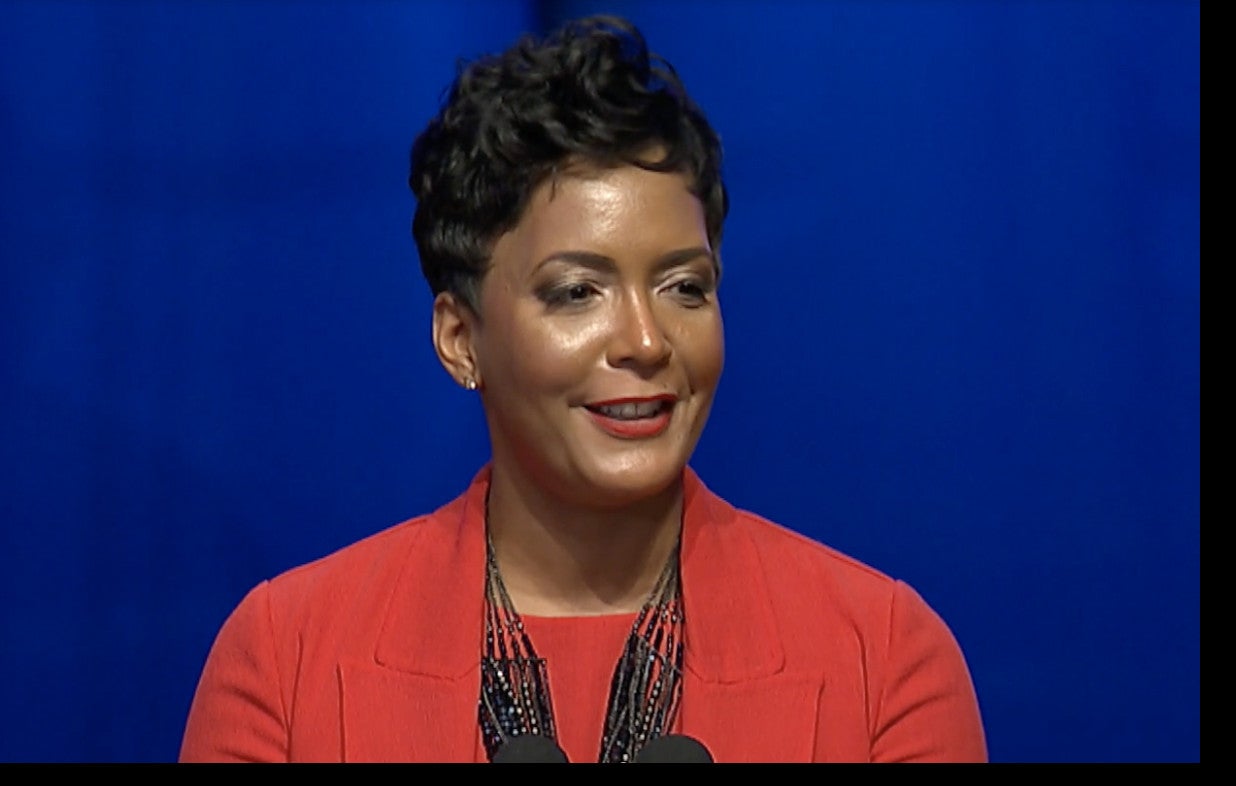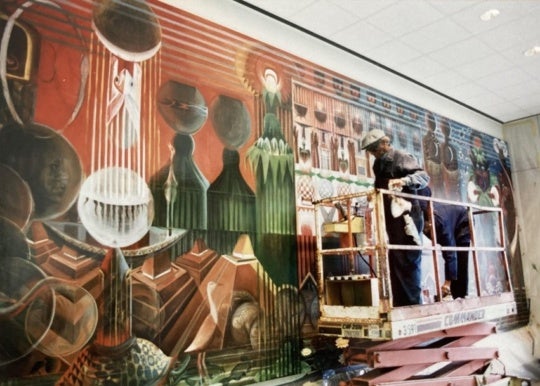
The City of Atlanta Mayor’s Office recently announced a contest for the design of the logo for a new initiative whose sole prize is “bragging rights.” The Mayor’s Office of Equity, Diversity & Inclusion announced the contest for the LGBTQ Affairs logo, with the caveat that the Mayor’s Office keeps all intellectual property as its own. While this is common practice in most work for hire, in this case the Mayor’s Office is not willing to pay artists for their work.
The call for designs states: The Competition winner will receive bragging rights as the winner’s Logo Design will be featured on the City’s website and social media sites. No monetary prizes will be awarded. … Entrants agree and understand that this Competition does not represent any obligation or agreement on the part of the City. Further, Entrants agree and understand that the City is not obligated to pay, nor shall, in fact, pay, any costs or losses incurred by Entrants at any time.
This call has been met with skepticism from the artist community, which two weeks ago applauded Mayor Keisha Lance Bottoms for doubling the Office of Cultural Affairs budget.
In a phone interview, Perrin Drumm, founder of the magazine Eye on Design, published by the American Institute of Graphic Arts (AIGA), said of the Mayor’s contest, “The last time I did anything for bragging rights alone it was playing checkers with my dad when I six.”
She says, “Spec work devalues design and, by extension, devalues the role of the designer. It fails to acknowledge that there’s a creative process here between client and designer, and reduces design to a push-button service.”
Drumm doesn’t think that doing comp work is a bad thing, but emphasizes that the terms must be set by the designer. The terms of the Mayor’s competition are clearly not in the designer’s favor. According to the call, even the entries that don’t get selected become the sole property of the city (“By submitting a Logo Design, each Entrant assigns all ownership rights, including all Intellectual Property Rights associated with the Logo Design, whether registered or not, to the City in perpetuity.”), so the Mayor’s Office is basically getting thousands of hours of design work for free, that they theoretically could use down the road.
According to Drumm, “since no professional designer with any self-respect is going to submit work on spec, the city is going to receive unprofessional work. Do they really want the most visible symbol of its LGBTQ initiative to be amateurish? They’d save a lot of time and ill will by simply hiring a pro. If they don’t know where to find one, I recommend getting in touch with AIGA’s amazing Atlanta chapter.”
It is unclear why the Mayor’s Office decided on this particular type of campaign to find a logo design. The Mayor’s office did not return repeated calls asking for comment, and, at this writing, the Mayor’s Office of Equity, Diversity & Inclusion doesn’t have working phones and couldn’t be reached at all. From the call itself, it appears that this was meant to be a community engagement initiative. On the contrary, many local artists felt that it crossed the line from community engagement to disrespecting the local arts community.
Dominic Maschler, who works on the animated TV show “Archer,” was similarly displeased (if unsurprised). He posted on social media about the call, prompting a firestorm of artists calling for the Mayor’s Office to rethink the call.
“I saw the City of Atlanta’s Instagram post and immediately knew I needed to say something about it,” Maschler said via email. “Even though a government office sent out that call for contestants, one person responding back to them online, in public view, could spark a conversation, and be educational to people that otherwise wouldn’t have understood why design contests tend to be an unethical way to treat art professionals. The response I got was overwhelmingly positive. Even the one person who disagreed about it being unethical conceded that process would end up being a bad choice for the city and they would ultimately get what they were paying for.”
Maschler noted that he had one friend with a decent counter argument, which was that the contest is voluntary, and cities often need to prioritize their money for important things like safety and education, which take precedence over spending public funds on a logo.
“When public and private institutions both take advantage of designers, the net result is that everyone loses. The contestants lose by working for free, and everyone else loses because their industry is being diluted by a free workforce,” Maschler said.
“I understand that budgets can be tight,” Maschler said, “but the city has someone making graphics for their social media accounts already, and if money was an issue, they could just make use of the staff they’re already paying. That would be cheap and ethical. However, that isn’t even the case.” He noted that Tim Keane at the Atlanta Department of City Planning hired local firm Matchstic to do design and branding work. “Certain parts of the city government obviously understand the value of design, but they apparently aren’t all on the same page,” Maschler said.
“Beyond the misconception about what designers do and what their skills are, there is perhaps a bigger issue, which is that many freelance designers, and artists in general, are basically sole proprietors, and are constantly approached by people who try to take advantage of that fact,” Maschler wrote. “Clients will want them to work for exposure, or for gift cards, or for the prospect of future work. They will try to get them to fully complete designs before they decide whether or not they should be paid and have them sign contracts that make them forfeit any claim to ownership of their work. They are pitted against each other in contests, and now, there are entire websites dedicated to farming out creative work to the lowest bidder.”
In city government, being frugal is certainly an asset, but not on the backs of constituents whose livelihoods are at stake.
“Being an artist is a job that feels like you’re constantly being taken advantage of,” says Maschler. When private businesses and public officials perpetually devalue artists’ time and work, he says, it sends a message that the practice is okay, and encourages other entities to do the same.
Mayor Bottoms has said she wants to create an administration founded on respect, fairness, and love for the community. It will be interesting to see how her administration handles the criticism they are receiving around this contest.
For more information on this call, click here.




